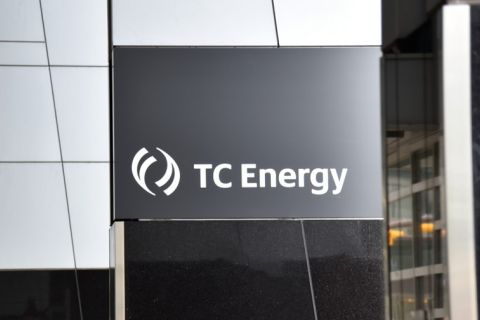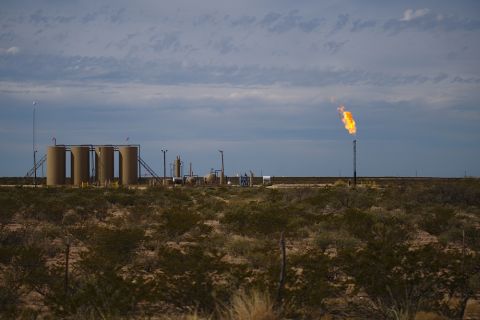Producers and California Democrats are certainly unlikely allies, but it appears they may have found common ground when it comes to questioning the tactics of energy-marketing firms. A group of gas producers, major service companies and utilities-calling itself the Coalition for Energy Market Integrity and Transparency (EMIT)-has joined the chorus that is asking the federal government to rein in energy marketers. Arguments that once originated on the West Coast are being heard in the heart of the oil patch. "Deregulation has been hijacked by traders, hedge funds and others who profit from volatility...," Raymond Plank, Apache Corp. chairman, told U.S. House of Representatives committee members recently, at a hearing on the effects of the Enron bankruptcy. Apache, whose chairman has been a longtime critic of energy-marketing firms, is the first producer to give its name to the coalition. However, thousands of other producers are supporting the coalition via industry associations, such as the Louisiana Independent Oil & Gas Association (LIOGA) and Texas Independent Producers & Royalty Owners Association (TIPRO). Also, three major service companies-Halliburton, Schlumberger and Noble Drilling-are members, as are several public and municipal utilities. EMIT is adding its own twist to the mounting criticism of energy marketers. While many critics focus solely on the consumer side of the equation, EMIT is trying to make the case that the "unwarranted volatility" allegedly created by energy marketers is discouraging producers from funding domestic drilling programs, and is destroying the nation's gas infrastructure. "Volatile, unpredictable gas prices have caused U.S. gas producers to slash their budgets, and the drilling-rig count this year is averaging 656, versus 939 in 2001," says EMIT president Arthur Corbin, who is president and general manager of the Municipal Gas Authority of Georgia. In a written statement, Plank adds that each price downturn forces producers to shut-in marginal wells that can never be restored to production. "With every down-cycle, we lose valuable infrastructure, capital and people." EMIT's goals include: • The reduction of unwarranted price volatility in energy markets, and the potential for energy market manipulation; • Assurance that energy markets are open and transparent to the timely disclosure of supply, demand and price data; • Requirements that traders in over-the-counter markets and online-trading platforms have the ability to perform and fulfill their contractual obligations; • Assurance that regulated affiliates of energy companies are effectively separated from their unregulated affiliates in their decision-making and actions; and • A reform of the accounting treatment of energy-derivative transactions to assure mark-to-market accounting and other techniques are not used by energy traders to misrepresent themselves or distort energy markets. Specific proposals For now, EMIT members are championing two specific proposals, says Obie O'Brien, Apache director of government and regulatory affairs. First, EMIT wants the federal government to establish an agency that has the power to collect and disseminate real gas-market supply and demand information. Currently, the market relies on storage figures as a proxy to judge how the entire market is performing, but those numbers are not enough to paint an accurate picture, he says. "We would like someone like the Energy Information Agency (EIA) to take over that job and have the authority to require timely and accurate reporting of storage information, pipeline capacity, production, consumption, weather reports-the whole range of information-and disseminate that to the public," O'Brien says. Corbin adds that penalties should be imposed on companies that misrepresent the numbers or fail to provide information. "Right now, all this reporting is voluntary, and the numbers are all over the map," he says. "Incomplete, inaccurate and unsubstantiated numbers can and do affect the price of gas." Second, EMIT supports legislation by Sen. Dianne Feinstein (D-California) to boost oversight of the energy-derivatives market, giving the Commodity Futures Trading Commission authority to track large trades in the over-the-counter market for electricity, gas, oil and gasoline. Feinstein withdrew the proposal in April when she could not get enough votes to counter a threatened filibuster. However, the Senate Agriculture Committee planned to hold a hearing on the proposal in May. The birth of EMIT comes as energy traders are facing intense scrutiny by the Federal Energy Regulatory Commission (FERC), and more and more energy traders are admitting to questionable trades. Reliant Resources announced in May that is has been involved in "round-trip" trades, or zero-sum purchases and sales with the same counterparty at the same price. "These transactions resulted from some misguided employees who believed that being higher in the league tables of energy trading was important," says Steve Letbetter, chairman, president and chief executive officer. CMS Energy Corp. admitted to such trades as well and added that all of its "round-trip" trades were with Reliant or Dynegy Inc. The revelations have helped undermine the reputation of an industry already under siege. Just before the Reliant and CMS announcements, federal regulators had released internal Enron memos outlining trading strategies with monikers such as "Death Star" and "Fat Boy" that were apparently used to manipulate electricity supplies and prices, boosting trading volume and revenues. At press time, FERC was asking energy-trading firms for information on trading practices, trying to determine participation in any of the questionable trading schemes undertaken by Enron. The traders' responses were due May 22. "We're taking FERC's request very seriously," says Pat Hemlepp, a spokesman for American Electric Power. "We've even brought in an outside law firm to do an independent verification by going though our trading records, our IT systems and trading, and interviewing our traders and marketers who are involved in transactions." The marketer's role Conoco Inc. is on both sides of the energy-trading issue-as both a gas producer and marketer. Spokeswoman Jo Ellen Davis says that while Conoco is not a member of EMIT, the company is well aware of its goals. "Conoco is a supporter of market transparency and the elimination of manipulation," says Davis. At one time, Apache itself was a part owner of Natural Gas Clearinghouse, which was the predecessor to Dynegy. Apache sold its stake in 1992, and ChevronTexaco presently owns about 26% of the energy-marketing company. At press time, there was speculation that ChevronTexaco would buy the rest of Dynegy. Energy traders maintain they play an important role in the market. Dynegy spokesman John Sousa says it's not always easy to get energy from the producer to the consumer, and marketers can use their expertise to find the most logical-and least expensive-way to market. This allows producers to focus on their core businesses, he says. "In many cases, energy pathways are more like a long city street than an interstate highway," Sousa says. "Instead of stop signs, traffic lights and intersections, there are regulatory inconsistencies-bottlenecks-that occur between various federal and state jurisdictions, as well as differences in tariff structures that affect how much it costs to transport energy. Energy merchants find the way around the traffic jams." In addition, Sousa says energy merchants help stabilize prices by providing risk-management tools to customers to help ensure stability, and by using their own power plants and gas-storage facilities to structure transactions for customers. "The net effect is that energy companies are spared from taking on the risk themselves or spending money to build their own in-house risk-management departments." O'Brien says that philosophically it would be better if producers could sell their energy directly to consumers, but he acknowledges that there will always be a place for marketers. "Realistically, most consumers and, frankly, most producers aren't going to either produce or consume in enough quantities, or have the wherewithal to have someone [internally] marketing their gas. So there is always going to be a role for legitimate aggregators of supply," he says. But he worries that the types of trades that apparently occurred at Enron will happen at other energy-merchant houses unless action is taken. "We think that especially after all these high-profile news articles about the revelations-one after the other-from these traders, we think we've hopefully gotten some people's attention. It wasn't just a one-company problem...We have to make systemic changes, get to the root cause."
Recommended Reading
Pembina Pipeline Enters Ethane-Supply Agreement, Slow Walks LNG Project
2024-02-26 - Canadian midstream company Pembina Pipeline also said it would hold off on new LNG terminal decision in a fourth quarter earnings call.
Enbridge Announces $500MM Investment in Gulf Coast Facilities
2024-03-06 - Enbridge’s 2024 budget will go primarily towards crude export and storage, advancing plans that see continued growth in power generated by natural gas.
TC Energy's Keystone Oil Pipeline Offline Due to Operational Issues, Sources Say
2024-03-07 - TC Energy's Keystone oil pipeline is offline due to operational issues, cutting off a major conduit of Canadian oil to the U.S.
TC Energy’s Keystone Back Online After Temporary Service Halt
2024-03-10 - As Canada’s pipeline network runs full, producers are anxious for the Trans Mountain Expansion to come online.
Waha NatGas Prices Go Negative
2024-03-14 - An Enterprise Partners executive said conditions make for a strong LNG export market at an industry lunch on March 14.




